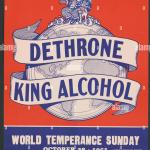According to John Milbank (“Politics of time”), “libertarianism insists that the future lies with the isolated ‘reflective’ individual manipulating a plethora of life-choices” but also “claims that civil society is sound and that new forms of community are emerging: sport associations, women’s support networks, single-issue groups, etc.”
Milbank is not impressed: “all of these, however worthy or unworthy, are rather evidence of lack of community.”
They fail to meet what Milbank argues are key features of genuine community: difference, and, because of difference, encounter; and self-sufficiency, the “potential to survive without outside aid as, e.g., in the case of a family or a parish, which can emigrate, survive and propagate like the Pilgrim Fathers.”
Rather than forming communities, these associations are evidence of an intensified individualism: “Having abandoned their singularity in favor of an essence – a hobby, or being-a-woman, being-a-black-man, being-a-man, liking to sleep with men, liking a kind of rock music, being obsessed with a particular kind of threatened animal, etc. – they wish to associate with other foreclosed singularities to find mutual support, aid and encouragement.”
Some, he argues, are “essentially reactive groups (which is not to say that they necessarily represent false reactions), often sustaining a mythical sense of victimage.” Instead of friendship, such groups operate by the dynamics of “input and output, and of a trade in mutual support.”
Communitarianism misses community from the other direction: “if libertarians tend to underestimate the importance of relative self-sufficiency to real community, communitarians overestimate it, precisely because absolute self-sufficiency can never be achieved. Every community exchanges outside of itself, with the infinite unknown.” Communitarians minimize the necessary elements of difference and encounter.
Like much of what Milbank writes about contemporary social and economic life, that is too stark. The members of a bowling team are probably connected by more than their love for bowling; some might not even be so keen on bowling as on spending a few extra evenings every month among friends. Still, Milbank has a point: Affinity groups don’t make a community, because the things held in common are too thin.
One of the intriguing points here is the central importance of exchange to the formation of genuine community. Communities cannot persist as communities without being porous, without indwelling and being-indwelt: “throughout nature, all totalities are breached continuously and they are always already breached: they are always involved in an exchange beyond themselves, in an unending chain of exchanges through space and time. For this reason, the organization of exchange is fundamental, and will tend to govern everything else, including every attempt to circumscribe a totality.” This is, Milbank provocatively suggests, “truth of economic determinism; the priority of what breaches, flows into and out again, thus the priority of both production and exchange.” He is not an economic determinist, but he recognizes that it exaggerates a truth about the primacy of exchange.
Citing Jean-Luc Nancy, Milbank claims that “community is not a fusion, at least not a complete fusion, because that just produces another isolated individual totality.” A totally-fused community is just a higher individualism, an individualism of the isolated group. Instead of fusing, community values “encounter, meeting with the other and the different.” Genuine community thus cannot make “community” an absolute value. Community flourishes only when it values something that transcends the community: “If one gives ultimate value to community within a community, it becomes contradictory to set absolute bounds to that community, or to new encounters outside it, within time and space.” Those absolute bounds and bonds inhibit exchange and thus undermine community. Making community into an ultimate value ends in the destruction of community.
In short, “community needs strangers, who are the only available neighbors.” Strangers like newborns, strangers like the sons- and daughters-in-law who come into the family, strangers who differ. Without strangers, communities are creepy because they are incestuous.
For these reasons, Milbank argues that community is only possible by grace. “Community, where it exists, is an end in itself,” and “ineffable.” It is an end in itself, but not because it values itself above all. It is an end in itself only by valuing some transcendent reality above itself. Failure to reckon with the ineffability of community is one of the flaws in MacIntyre’s advocacy of “thick virtues”: “To start to justify or to argue for thick virtues leads to referring to, e.g., social cohesion, or the cohesion of the individual (Aristotle does this as much as Locke and Mill). A genuinely thick virtue, a genuine model of social bonding valued for its intrinsic quality, would have to be unnamable and ineffable. Augustine gave it the only possible general name, which is ‘peace,’ but, along with St. Paul, he did not take this as something one could contrive or formally plan for.”
Community cannot be a human construct. It “arises ‘by grace,’” which is to say, it takes form “as a thousand different specific models of social harmony, a thousand different gifts of specific social bonding, a thousand kinds of community.”
(Milbank, “Politics of Time: Community, Gift, and Liturgy,” Telos 113 [1998]: 41-67.)















